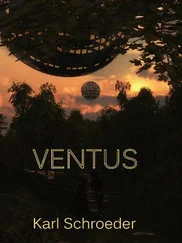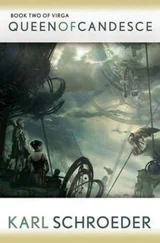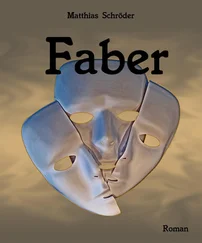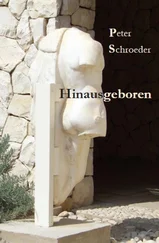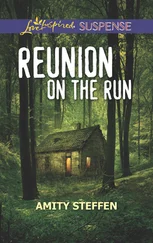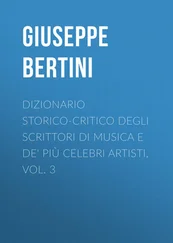For my father
Frederick H. Gaige
1937–2009
here is the deepest secret nobody knows (here is the root of the root and the bud of the bud and the sky of the sky of a tree called life;which grows higher than soul can hope or mind can hide) and this is the wonder that’s keeping the stars apart
i carry your heart(i carry it in my heart)
— E. E. Cummings
What follows is a record of where Meadow and I have been since our disappearance.
My lawyer says I should tell the whole story. Where we went, what we did, who we met, etc. As you know, Laura, I’m not a reticent person. I’m talkative — you could even say chatty — for a man. But I haven’t spoken a word for days. It’s a vow I’ve taken. My mouth tastes old and damp, like a cave. It turns out I’m not very good at being silent. There are castles of things I want to tell you. Which might explain the enthusiasm of this document, despite what you could call its sad story.
My lawyer also says that this document could someday help me in court. So it’s hard not to also think of this as a sort of plea, not just for your mercy, but also for that of a theoretical jury, should we go to trial. And in case the word jury sounds exciting to you (it did to me, for a second), I’ve since learned that a jury gets all kinds of things wrong, cleaving as it does to initial impressions, and in the end rarely offers the ringing exonerations or punishments that we deserve, but mostly functions as a bellwether for how the case is going to skew in the papers. It’s hard not to think about them anyway, my potential listeners. Lawyers. Juries. Fairy-tale mobs. Historians. But most of all you. You — my whip, my nation, my wife.
Dear Laura. If it were just the two of us again, sitting together at the kitchen table late at night, I would probably just call this document an apology.

Once upon a time, in 1984, I created another fateful document. On the surface, it was an application to a boys’ camp on Ossipee Lake in New Hampshire. I was fourteen and had been living in the United States for only five years. During those five years, my father and I had occupied the same top-floor apartment of a tenement in Dorchester, Mass., which if you’ve never been there is a crowded multiracial neighborhood in Boston’s southern hinterlands. Even though I had quieted my accent and cloaked myself in a Bruins hockey shirt, and tried to appear as tough and sulky as my Irish American counterparts who formed Dorchester’s racial minority, I was still mentally fresh off the boat and was still discovering, on a daily basis, the phenomena of my new homeland. I remember the electronic swallowing sound of a quarter by the slot of my first video-game machine, as well as the sight of a vibrating electronic toothbrush, and how, one day while I was waiting for the bus, a boy not much older than me drove up to the curb in a Corvette convertible and hopped out without use of the door. I remember seeing many sights like this and more, because the feelings they brought up were confusing. At first I’d feel a pop of childish wonder, but this wonder was followed by the urge to stuff it back, because if I were a real American I would not have been in the least impressed with any of it. Self-consciousness was my escort, a certain doubleness of mind that I relied upon to keep myself from asking stupid questions, such as when Dad and I drove across the border of Rhode Island one day on an errand, and I resisted asking why there was no checkpoint between state lines, for I had — if you can believe it — brought my German passport with me.
I first saw the brochure for Camp Ossipee in my pediatrician’s office. I studied it every time I was sick until I slipped it in my jacket and took it home. I stared at this brochure for weeks — in bed, in the bath, hanging from my pull-up bar — until its pages started to stick together. The American boys in the photographs hung suspended in the air between cliffside and lake water. They walked in threes portaging canoes. I started to envision myself swimming with them. I imagined myself crawling through the wheat or whatever, learning to track and to mushroom. I would be the go-to man, the boy out in front, not so much the hero but an outrider. I was particularly interested in the Ossipeean rite of passage available only to the oldest boys in their final year — a solo overnight camping trip on a remote island in the middle of the lake. And here is where my future self was really born to me, in this image: myself, Erik Schroder, man alive, stoking a fire in the night, solo , self-sufficient, freed from the astrictions of society. I would fall asleep as one boy and wake up the next day a totally different one.
All I had to do to apply to the camp was to fill out a form and write a personal statement. What sort of statement were they looking for? I wondered. What sort of boy? I sat at my father’s card table, gazing out the window at the corner of Sagamore and Savin Hill Ave., where two classmates of mine were fighting over a broken hockey stick. I slipped a piece of paper into my father’s typewriter. I began to write.
Mine was a tale that, by certain lights, was the truest thing I had ever written. It involved the burdens of history, an early loss of the mother, a baseless sense of personal responsibility, and dauntless hope for the future. Of course, by other lights — the lights that everyone else uses, including courts of law — my story was pure canard. A fraudulent, distorted, spurious, crooked, desperate fiction, which, when I met you, I lay bound at your feet. But this was 1984. I hadn’t met you yet. I wasn’t lying to you —I was just a child, sitting at my father’s typewriter, my legs trussed to the knee in white athletic socks, my hair still rabbit blond, not dark at the roots like it is now. I addressed the envelope. I filched a stamp. When it came time to sign the bottom of that crowded page, it was with some flair that I first signed the name by which you came to know me. The surname wasn’t hard to choose. I wanted a hero’s name, and there was only one man I’d ever heard called a hero in Dorchester. A local boy, a persecuted Irishman, a demigod. He was also a man who’d spoken to cheering throngs of depressed West Berliners circa 1963, leaving them with a shimmering feeling of self-regard that lasted long beyond his assassination, his hero status still in place when my father and I finally got there much later. In fact, you might say John F. Kennedy is the reason we showed up in this country at all.
I spent months intercepting the mail looking for my acceptance letter from Ossipee. The letter would offer me full acceptance to camp on scholarship, as well as sympathies for my troubles. I dreamt of this letter so often that I had a hard time believing it when it actually arrived. We at Ossipee believe that every boy deserves a summertime… We are dedicated to supporting boys from all circumstances… Come join us by the shores of our beloved lake… Ossipee, where good boys become better men . Yes, yes, I thought. I accept! I’ve got plenty of circumstances! My excitement was tempered only by the sound of Dad’s key in the downstairs foyer, and I realized I wasn’t going to be able to show him the letter itself, which was addressed to a different boy. Instead, I showed him the disintegrated brochure. I told him of the man-to-man phone call from the camp director. I even made the scholarship merit based, rounding out the fantasy for both of us. We trotted around the apartment all evening. It was as close as my father ever got to joyful abandon.
Читать дальше




